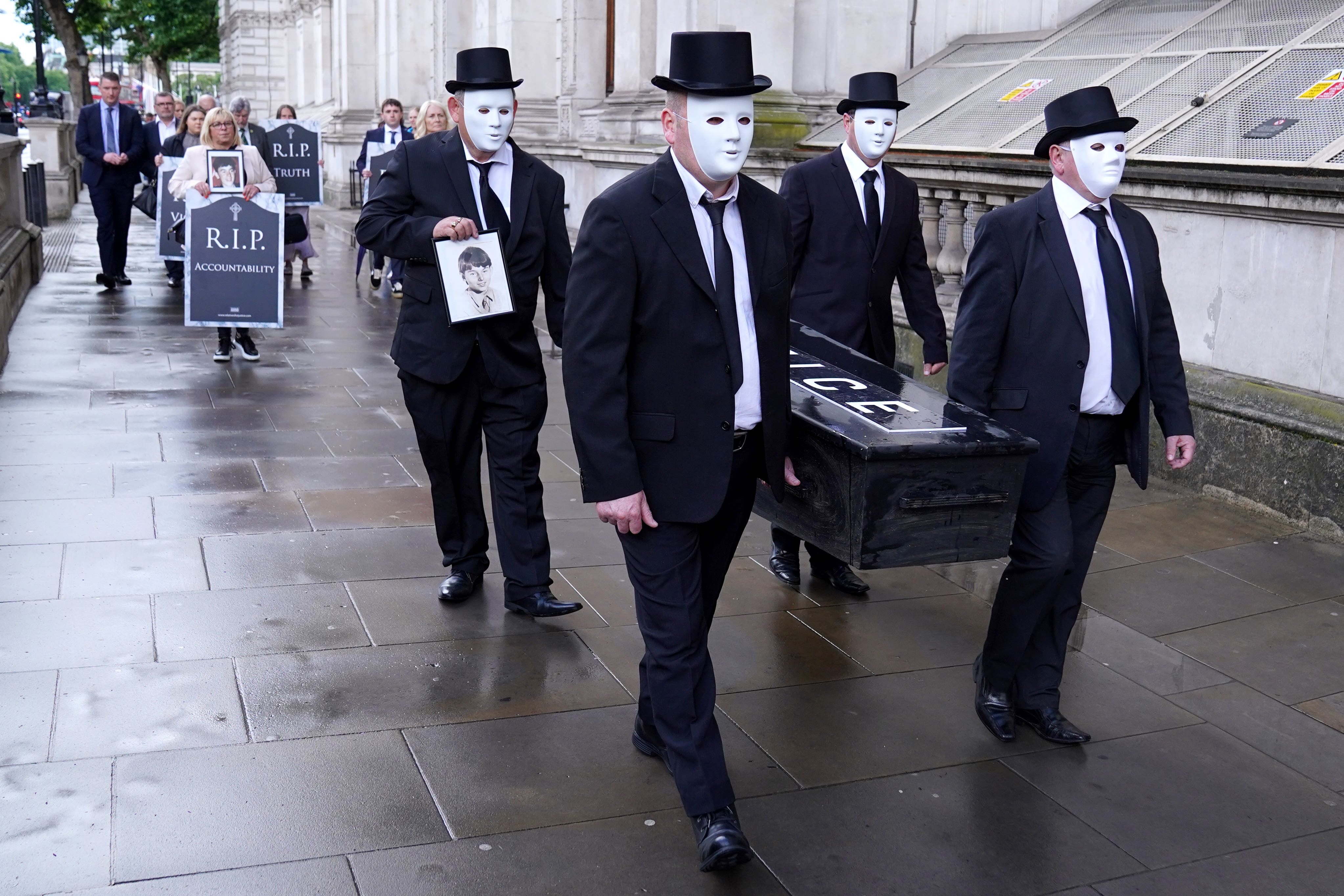Government legacy bill risks breaches of human rights law, committee finds
The Government has been urged to reconsider its legislation on dealing with Northern Ireland’s Troubles.

Your support helps us to tell the story
From reproductive rights to climate change to Big Tech, The Independent is on the ground when the story is developing. Whether it's investigating the financials of Elon Musk's pro-Trump PAC or producing our latest documentary, 'The A Word', which shines a light on the American women fighting for reproductive rights, we know how important it is to parse out the facts from the messaging.
At such a critical moment in US history, we need reporters on the ground. Your donation allows us to keep sending journalists to speak to both sides of the story.
The Independent is trusted by Americans across the entire political spectrum. And unlike many other quality news outlets, we choose not to lock Americans out of our reporting and analysis with paywalls. We believe quality journalism should be available to everyone, paid for by those who can afford it.
Your support makes all the difference.Proposed Government legislation to deal with the legacy of Northern Ireland’s Troubles risks widespread breaches of human rights law, a Westminster committee has found.
The Joint Committee on Human Rights has urged the Government to reconsider its approach following legislative scrutiny of the Northern Ireland Troubles (Legacy and Reconciliation) Bill.
The bill has already been through the House of Commons and is now set for consideration by the House of Lords.
The legislation proposes a form of amnesty for perpetrators of Troubles crimes in exchange for co-operation with a new truth recovery body.
The bill, if enacted, would also end inquests and civil proceedings related to the conflict.
The changes are opposed by political parties and victims’ groups in Northern Ireland, as well the Irish government.
We agree with many other stakeholders that this bill as drafted is unlikely to comply with the European Convention on Human Rights
In its report, the cross-party committee warned that the bill’s approach risks failing to meet the minimum standards required to ensure effective investigations into Troubles-related cases concerning deaths and serious injury.
It stated that the right to life and the prohibition of torture under the ECHR require that the State undertake investigations into certain cases concerning deaths and serious harm which are independent, effective, reasonably prompt and expeditious, subject to public scrutiny, and involve the next-of-kin.
The committee has also expressed concern that shutting down avenues to pursue truth and justice is a “high-risk strategy and places the UK at risk of non-compliance with Article 6 (right of access to a court) and Article 13 (right to an effective remedy)”.
It continued: “Criminal investigations, prosecutions, and inquests should be permitted to continue, and a more reasonable, longer limitation period should be provided for civil claims.”
Chairwoman of the Joint Committee on Human Rights, Joanna Cherry said: “Establishing a new framework for dealing with the legacy of the Troubles is a complex and difficult task, but that is why it is all the more important that the Government gets it right.
“A delicate balance needs to be struck between enabling reconciliation while taking steps to ensure that those still dealing with the devastating consequences of past events can access justice and effective remedies.
“We agree with many other stakeholders that this bill as drafted is unlikely to comply with the European Convention on Human Rights (ECHR).
“While we support the aim of reconciliation, we urge the Government to reconsider its whole approach.
“It’s crucial that the legislation ensures that investigations are independent, effective, timely, involve next of kin, and are subject to public scrutiny.
“Perpetrators of serious human rights violations should be able to be held to account.
“All possible avenues for the pursuit of justice and the provision of an effective remedy should be available to victims and their families.
“The Government must revisit this bill to ensure that it respects the human rights of all those affected and establishes a lasting framework for dealing with the legacy of the Troubles.”
An NIO spokesperson said: “The current mechanisms for addressing the past are delivering neither justice nor information to the vast majority of families.
“The legislation as a whole complies with our obligations under the European Convention on Human Rights and the Government continues to engage constructively with all stakeholders regarding their concerns, and how these might be addressed as the bill proceeds through parliament.”